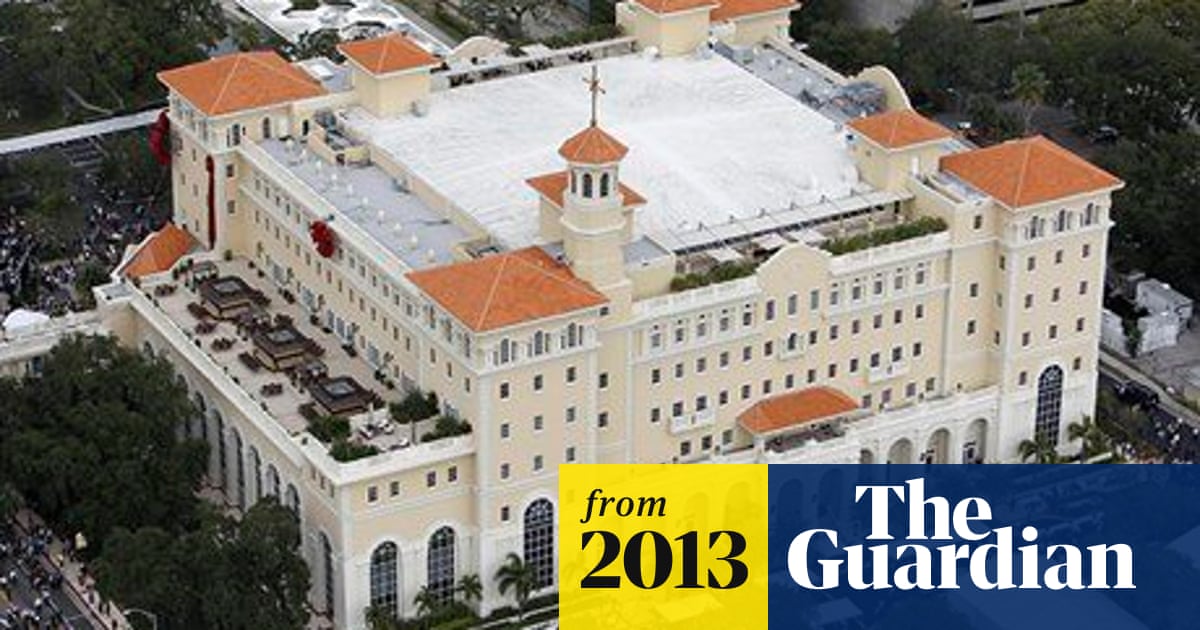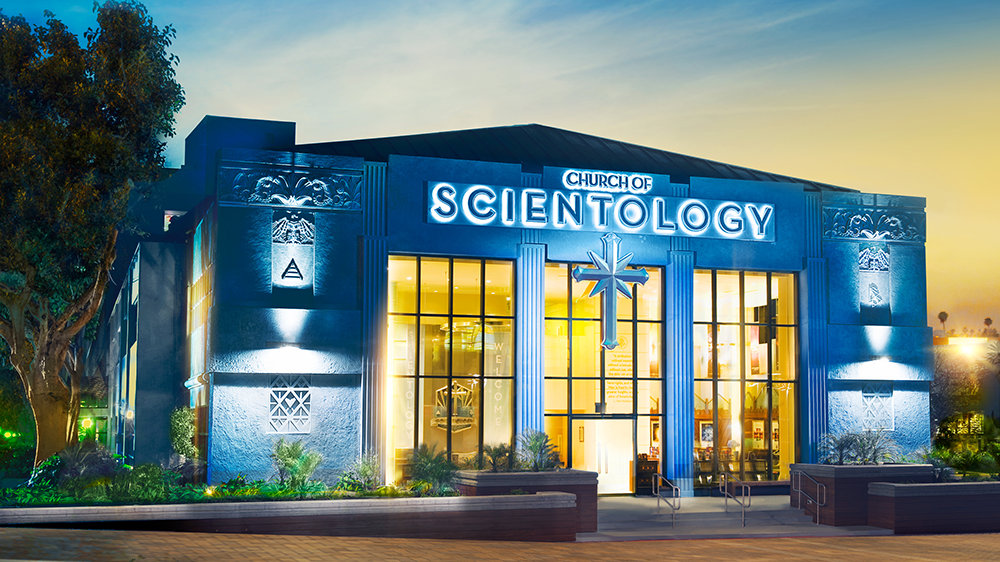What is Scientology? Discovering the Core Tenets and Principles
What is Scientology? Discovering the Core Tenets and Principles
Blog Article
The Fact About the Church of Scientology Revealed
The Church of Scientology has actually long been a topic of both attraction and conflict, with its beginnings dating back to the mid-20th century. Established by science fiction author L. Ron Hubbard, this spiritual activity has actually gained substantial attention for its special beliefs and methods. Nevertheless, past the surface area degree info that numerous recognize with, there lies a much deeper and more elaborate internet of disputes, objections, and complexities that shed light on the internal workings of this company. As we begin to decipher the fact about the Church of Scientology, a more clear picture arises, revealing a narrative that is as appealing as it is contentious.
Origins and Starting
The Church of Scientology was established in 1954 by sci-fi writer L. Ron Hubbard. Hubbard originally created a self-help system called Dianetics, which later on advanced right into what is now understood as Scientology. The origins of Scientology trace back to Hubbard's dissatisfaction with traditional psychiatric therapy methods and his idea in the potential for people to get rid of past injuries and attain spiritual enlightenment.
Hubbard's trainings focused around the idea of thetans, immortal souls offer in all individuals, and the practice of auditing, a type of counseling focused on uncovering and resolving previous injuries (Johannesburg North). These concepts developed the structure of Scientology, which Hubbard referred to as a faith that provided a course to self-discovery and personal growth
The Church of Scientology quickly got followers, with Hubbard establishing the first main Church of Scientology in Los Angeles. For many years, the organization expanded worldwide, bring in both devoted fans and critics who elevated problems concerning its practices and beliefs. In spite of disputes bordering its origins and methods, Scientology remains to be a substantial religious motion with an existence in different countries around the globe.

Beliefs and Practices
With an emphasis on spiritual enlightenment and personal development, Scientology's ideas and techniques revolve around achieving and revealing previous injuries self-discovery through the principle of thetans and the method of auditing. Thetans, according to Scientology teaching, are immortal souls that exist within each person. These thetans have actually lived with numerous past lives and have gathered negative experiences referred to as engrams that impede spiritual progress. Through a procedure called bookkeeping, Scientologists goal to address and remove these engrams to obtain a state of clear, without the unfavorable results of past injury.
Auditing entails an one-on-one session in between a skilled auditor and a Scientologist. Throughout these sessions, the auditor overviews the individual with a series of inquiries and workouts made to assist them challenge and settle their previous traumas. By doing so, Scientologists believe they can attain spiritual enlightenment, enhance individual development, and reach their full potential as souls. The method of bookkeeping is main to the ideas and techniques of Scientology, highlighting self-discovery and the quest of a higher state of presence.
Controversies and Objections
Amidst public scrutiny and dispute, the Church of Scientology has actually dealt with important site a wide variety of disputes and my latest blog post criticisms regarding its methods and effect on society. One substantial factor of opinion focuses on the company's alleged monetary techniques, with accusations of exorbitant charges for services and hostile fundraising tactics - Church of Scientology. Critics have actually additionally elevated issues regarding the Church's rigorous ordered structure, which some former members declare cultivates a culture of control and control
Furthermore, the Church of Scientology has been subject to widespread criticism for its therapy of members, including accusations of required labor, mental abuse, and the practice of interference, where participants are motivated to sever connections with friends and family vital of the Church. These practices have actually led to different lawful obstacles and investigations in numerous nations, casting a shadow over the Church's track record.
In Addition, the Church's aggressive lawful strategies against critics and media outlets have actually stimulated debates about freedom of speech and the limitations of spiritual protection. These disputes have dramatically designed public assumption of the Church of Scientology and proceed to sustain ongoing arguments concerning its legitimacy and impact on culture.
Management and Framework
Exactly how does the leadership framework of the Church of Scientology influence its operations and decision-making processes? The Church of Scientology is understood for its ordered leadership design, which is streamlined around the authority of its leader, presently David Miscavige.
At the local level, Scientology runs with private churches and missions, each with its very own set of leaders accountable for looking after procedures within their respective locations. These leaders are tasked with carrying out the directives set forth by the main management while also addressing the details demands of their churchgoers.
While this ordered structure can enhance procedures and ensure adherence to the church's teachings, it has actually also run the gauntlet for potential abuses of power and lack of openness. Recognizing the management and structure of the Church of Scientology is important in understanding exactly how the company functions and the characteristics at play within its ranks.
Influence and Effect
What substantial results does the leadership structure of the Church of Scientology have on its participants and outside stakeholders? The ordered management structure within the Church of Scientology exerts an extensive influence on its members and exterior stakeholders. Participants are commonly subjected to stringent control and monitoring, with considerable pressure to click to read more comply with the beliefs and techniques determined by the management. This can lead to a loss of individual autonomy and essential reasoning abilities, as individuals are expected to unquestioningly comply with the directives set forth by the company's leaders (Scientology Randburg).
Externally, the Church of Scientology's leadership structure can have a polarizing effect on stakeholders. While some may be drawn to the company's charismatic leaders and assurances of self-improvement, others might be careful of the control put in over members and the conflicts surrounding the church. This can result in a division in public assumption, with some seeing the organization positively and others expressing hesitation or objection. Generally, the leadership structure of the Church of Scientology plays a considerable duty in forming the experiences and assumptions of both participants and exterior stakeholders.
Final Thought

The Church of Scientology promptly gained fans, with Hubbard establishing the initial main Church of Scientology in Los Angeles.Amidst public scrutiny and debate, the Church of Scientology has encountered a multitude of debates and criticisms concerning its practices and impact on culture.What significant results does the management structure of the Church of Scientology have on its members and external stakeholders? The ordered management structure within the Church of Scientology applies an extensive impact on its members and outside stakeholders. Generally, the management framework of the Church of Scientology plays a considerable function in shaping the experiences and assumptions of both participants and exterior stakeholders.
Report this page